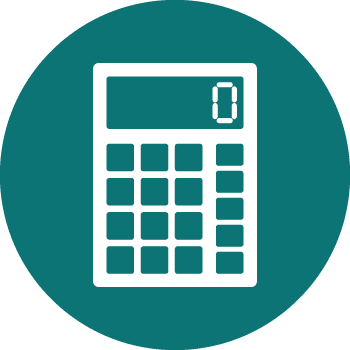Debt Consolidation Loans
Debt Consolidation Loans, What Are They?
Debt consolidation loans gather up multiple debts allowing borrowers to pay back one entity. If your debt isn’t too high and you have a high enough credit score to qualify to can be a great way to start to get debt under control at a more affordable interest rate.
Debt consolidation loans are a common vehicle for millions of Americans, because millions of Americans have lots of debt. How much debt, you ask? “American household debt hit a record $13.21 trillion in 2018. If you had to write that check it would read $13,210,000,000.00,” Debt.org reports.
All this debt is rarely to one creditor. Most debt is divided into multiple categories like credit cards, student loans, car loans, medical bills, payday loans and mortgages, with credit card debt accounting for the most commonly consolidated debt.
Too much debt can adversely affect your debt-to-income ratio or DTI. Lenders look at your debt to income ratio as a key indicator of your financial health. They calculate it by taking your monthly expenditures and dividing that number by your monthly income.
“The maximum DTI you can have to qualify for a mortgage is usually 43%. Most financial advisors recommend keeping your DTI at 30% or lower,” Debt.org says.
A debt consolidation loan won’t lower your DTI in the short term, but it can help you lower your interest on that debt and get it paid down faster, thus bringing up your DTI in the long term.
Most people who consolidate all their debt into one loan, and are given a term on that loan that is reasonable, they finally feel like there is debt freedom in their future. The key to success with debt consolidation is to not assume new debt in addition to the debt you consolidated. This defeats the purpose of the loan.
Is a Consolidation Loan for You?
Debt consolidating isn’t for everyone. Here are some key indicators that you are a good candidate for this type of loan:
- Credit scores qualify you for a 0 percent credit card and/or low-interest debt consolidation loan
- Income allows you to make consistent debt payments
- Total debt (minus mortgage debt) is lower than 40 percent of your gross income
- You are committed (and have a plan) to keep your debt from rising again
If you are looking to improve your credit score, a consolidation loan can help. By converting damaging revolving debt installment debt you can gain points on your score. After you consolidate your credit card debt, your existing balance-free credit cards will show that you have more total credit available, resulting in a lower credit utilization rate, which can boost your credit score.
Common Types of Debt Consolidation Loans Cover
One frequently asked question regarding debt consolidation loans is what kind of debt can they cover? According to the U.S. News and World Report, if any of the following debts apply to you, debt consolidation could help combine them for you:
- Medical bills
- Personal loans
- Credit cards
- Payday loans
Taking some time to research whether or not you should take out a debt consolidation loan could be a real financial game-changer for those with considerable debt. “Debt consolidation loans were a good choice for more than 60% of respondents, who indicated their loan helped them lower monthly payments, improve their credit score, or lower or eliminate debt,” U.S. News and World Report said.
Types of Debt Consolidation Loans
There are two types of debt consolidation loans: secured and unsecured. The biggest difference between the two types of loans is that secured debt consolidation loans use collateral, while unsecured loans do not.
Unsecured loans are used most often, but you can use a secured loan for unsecured debt, such as a home equity loan used for credit card debt consolidation.
Take the Time to Shop Around for the Best Loan Terms
After you have done your homework and find that you are a good candidate for a debt consolidation loan, the next step is to do your due diligence to make sure you are getting your best popular rate.
“58% of respondents spent two hours or less researching debt consolidation loans and 59% of respondents didn’t compare preapprovals from two or more lenders,” U.S. News said.
The importance of comparing rates can’t be overstated. Your loan terms will greatly impact your potential savings over the life of the loan.





